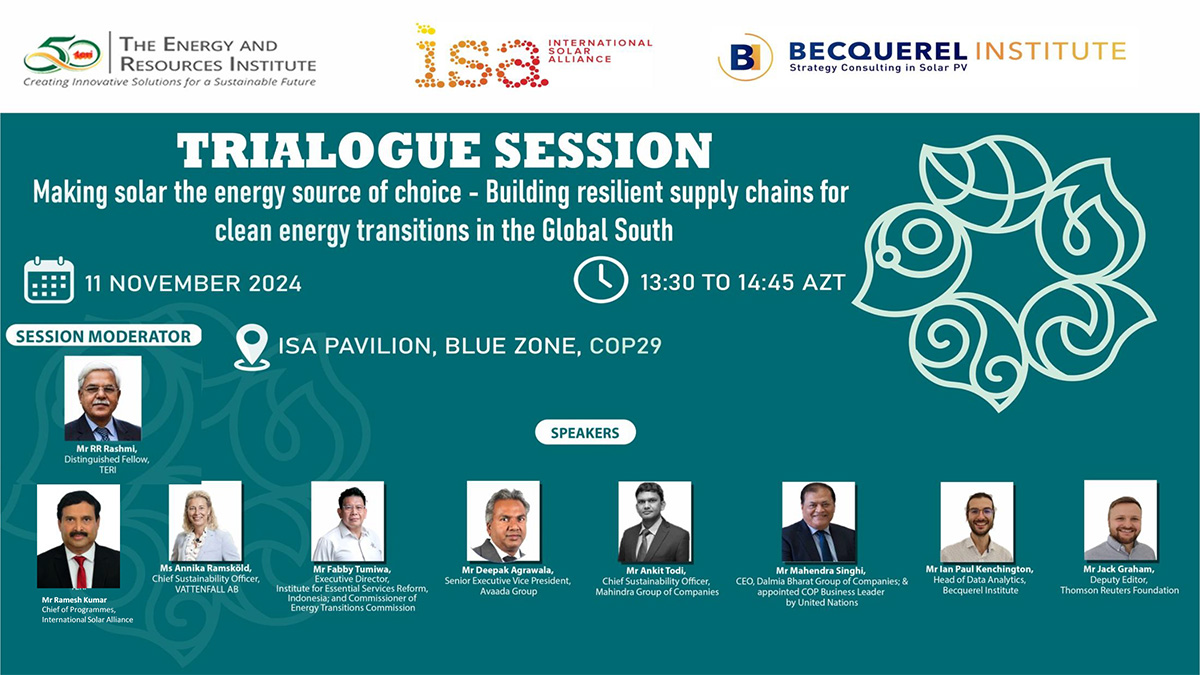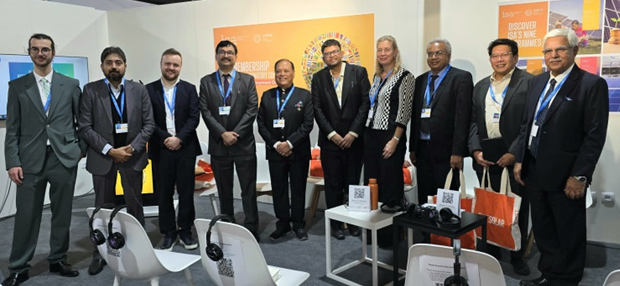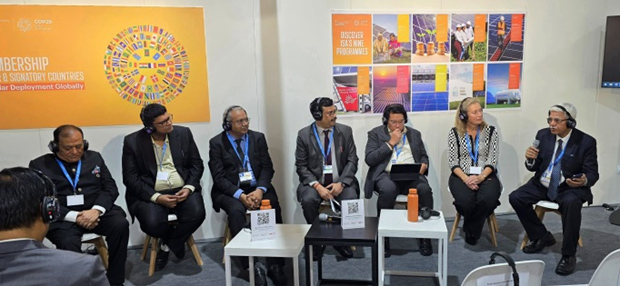Trialogue Session - Making Solar the Energy Source of Choice - Building Resilient Supply Chains for Clean Energy Transitions in the Global South



Rising cost of living, geopolitical challenges, and continued increase in the adverse impacts of climate change have exposed vulnerabilities in the solar supply chains, with the International Solar Alliance leading efforts to expand the supply chain of solar energy in developing countries.
Concentration of the solar PV supply chain in specific regions presents geopolitical and economic risks. The development of local solar PV manufacturing across the globe would bring advantages to the entire sector, from end customers to project developers as well as public authorities. In addition to reducing geopolitical supply or economic risk, developing regional supply chains can increase energy independence and reduce the cost and emissions of logistics around the world.
The Energy and Resources Institute (TERI) and the Becquerel Institute jointly organized a dynamic session titled, ‘Making Solar the Energy Source of Choice: Building Resilient Supply Chains for Clean Energy Transitions in the Global South’ on the first day of COP29 at the ISA Pavilion, Blue Zone.
This event brought together key stakeholders to address the critical need for resilient solar energy supply chains, especially in developing countries, to support global net zero ambitions. A key focus of the session was on the essential role of private sector participation in achieving these goals, with an emphasis on regional and global collaboration to make solar energy a truly sustainable and accessible form of renewable energy.
The session also featured the unveiling of key recommendations for resilient supply chain development, along with a multimedia clip from the ISA Private Sector Pavilion at the International Solar Festival. These recommendations aim to meet the 1,900 GW capacity target needed for the transition scenario and the $150 billion investment in solar manufacturing required by 2030.
The session concluded with the panellists affirming that solar energy will help drive affordable equitable, secure, and sustainable energy access across the Global South, with diverse, resilient supply chains supporting long-term energy independence.
